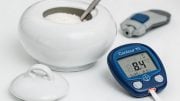After the information from FDA about Bayshore Pharmaceuticals, LLC recall. It was a voluntary nationwide Bayshore recall of metformin hydrochloride extended-release tablets. The FDA begins checking other drugs with the same cancer-causing contaminants.
“FDA recently became aware of nitrosamine impurities in certain samples of rifampin and rifapentine. These are antibacterial drugs used to treat tuberculosis; rifampin is also used to treat other serious infections. Patients taking rifampin or rifapentine should continue taking their current medicine and consult with their health care professional about any concerns,” – FDA said.
According to the article FDA ready to allow manufacturers to “temporarily distribute” the meds to U.S. consumers as they work to lower reported levels of 1-methyl-4-nitrosopiperazine (MNP) and 1-cyclopentyl-4-nitrosopiperazine (CPNP), two compounds in the nitrosamine family.
What are nitrosamines?
Nitrosamines, or more correctly N-nitrosoamines, refer to any molecule containing the nitroso functional group. These molecules are of concern because nitrosamine impurities are probable human carcinogens. Although they are also present in some foods and drinking water supplies, their presence in medicines is nonetheless considered unacceptable.
“DMA and NDEA belong to the so-called “cohort of concern”, which is a group of highly potent mutagenic carcinogens that have been classified by the WHO’s International Agency for Research on Cancer as probably human carcinogens. Despite the potency of these impurities, there is still a very low risk that nitrosamine impurities at the levels found could cause cancer in humans,” – according to WHO.
Rifampin and Rifapentine was not recalled to mitigate or avoid shortages and to help ensure patients have access to these necessary medicines. FDA will not object to certain manufacturers temporarily distributing rifampin containing 1-methyl-4-nitrosopiperazine (MNP) or rifapentine containing 1-cyclopentyl-4-nitrosopiperazine (CPNP) above the acceptable intake limits until they can reduce or eliminate the impurities.
Up to 13 million estimated number of people in the United States living with latent tuberculosis infection
Reaching the goal of tuberculosis elimination in the United States requires maintaining and strengthening current tuberculosis control priorities while increasing efforts to identify and treat latent tuberculosis infection among high-risk populations.
FDA and manufacturers are investigating the origin of these impurities in rifampin and rifapentine, and the agency is developing testing methods for regulators and industry to detect MNP and CPNP in these medicines. MNP and CPNP belong to the nitrosamine class of compounds, some of which are classified as probable or possible human carcinogens (substances that could cause cancer), based on laboratory tests such as rodent carcinogenicity studies.
“Tuberculosis is a potentially deadly disease that affects the lungs and sometimes other parts of the body, and the risk of not taking the medicine outweighs any potential risk from MNP or CPNP. Patients taking rifampin for other conditions should discuss with their health care professional whether they can use an alternative medicine,” – the author of the article concludes.
FDA encourages health care professionals and patients to report adverse reactions or quality problems with any human drugs to the agency’s MedWatch Adverse Event Reporting program.
To date Bayshore is the most recent drugmaker to pull its version of metformin off shelves after FDA investigators identified high levels of NDMA.





Be the first to comment on "FDA Balks At Bayshore Recall"